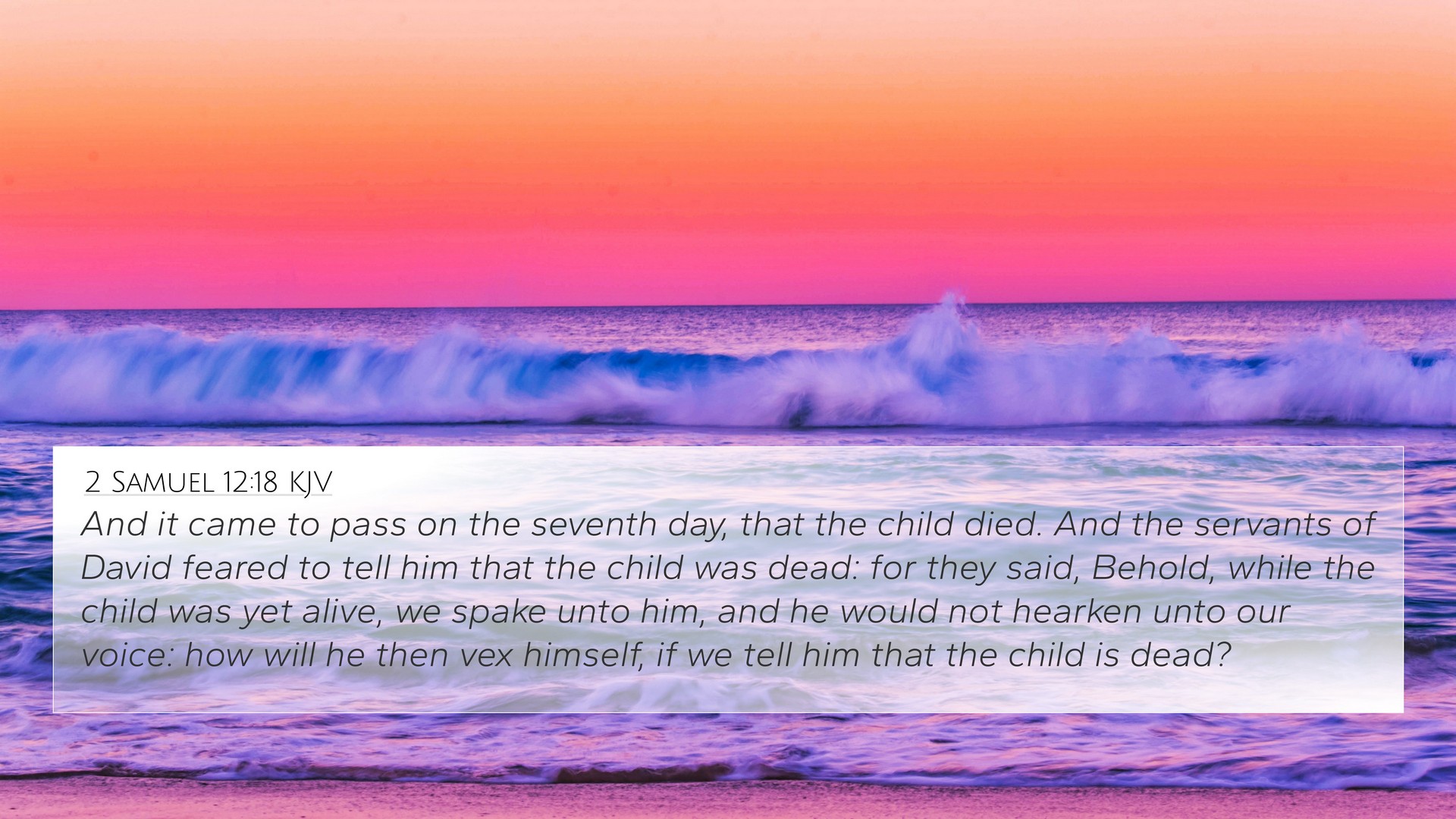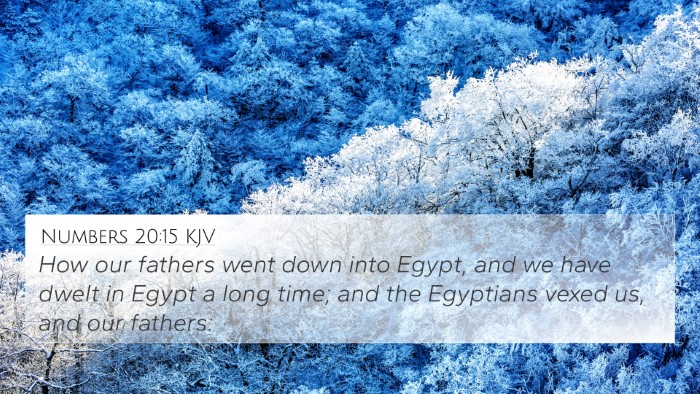Understanding 2 Samuel 12:18
Verse: “And it came to pass on the seventh day, that the child died. And the servants of David feared to tell him that the child was dead: for they said, Behold, while the child was yet alive, we spake unto him, and he would not hearken unto our voice: how will he then vex himself, if we tell him that the child is dead?”
This verse captures a critical moment in the life of King David as he grapples with the consequences of his actions, particularly concerning his sin with Bathsheba. The death of his child signifies the fulfillment of Nathan’s prophecy regarding the punishment for David’s sin. Various commentaries shed light on the implications of this moment in biblical history.
Commentary Insights
-
Matthew Henry: Henry explains that David, despite his deep mourning for the child, reflects on God’s sovereignty and justice. The death of the child serves as a reminder of the severity of sin and the inescapable nature of divine judgment. He also emphasizes that the child’s death was an illustration of God’s displeasure towards David's sins.
-
Albert Barnes: Barnes discusses the emotional turmoil faced by David’s servants who feared to break the news of the child's death to him. They anticipated that David would react with deep anguish, reflecting the important theme of grief and the natural inclination to protect loved ones from pain. The commentary highlights how the servants’ concern portrays common humanity in the face of devastating news.
-
Adam Clarke: Clarke provides insight into the cultural context, noting that in ancient Israel, the death of a child was particularly significant. He points out that David’s grief was heightened by the fact that the child was the product of his union with Bathsheba. This child represented both sin and redemption, and his death symbolizes the severance of that bond.
Thematic Connections
2 Samuel 12:18 resonates with numerous other biblical themes and verses. Here are some notable cross-references:
- Psalm 51:4: David’s acknowledgment of his sin against God, showcasing the need for repentance.
- 2 Samuel 12:14: Nathan’s prophecy about the death of David’s child, linking to the immediate consequence of his actions.
- Hebrews 12:6: Discussing God's discipline of His children, paralleling David’s punishment.
- John 9:3: Jesus refers to suffering not always being a punishment for sin, prompting reflections on the nature of suffering.
- Romans 6:23: The concept of sin leading to death, echoing the implications of David's sin and its consequences.
- Job 1:21: Job’s response to suffering serves as a contrast to David’s reaction, highlighting different responses to God's will.
- Matthew 5:4: Blessed are those who mourn, which relates to the broader perspective on sorrow within the Bible.
Comparative Bible Verse Analysis
Analyzing 2 Samuel 12:18 invites deeper questions about sin, punishment, and God's unfailing love. For those interested in how to find cross-references in the Bible, below are tools and methods:
-
Bible Concordance: A valuable resource for exploring themes and finding relevant Scripture verses related to specific contexts.
-
Bible Cross-Reference Guide: Essential for connecting related scriptures and enhancing the study experience.
-
Cross-Referencing Bible Study Methods: Engaging with diverse interpretations and commentary insights enriches understanding.
Conclusion
The narrative of 2 Samuel 12:18 is not just a historical account but also a profound lesson on the outcomes of sinful behavior, the weight of consequences, and the depth of grief following loss. By delving into the commentaries and interconnected verses, readers can appreciate the rich theological tapestry woven throughout the Bible. This verse and its context serve as a reminder of God's justice intertwined with His mercy, illustrating the intricacies of divine interaction with humanity.



